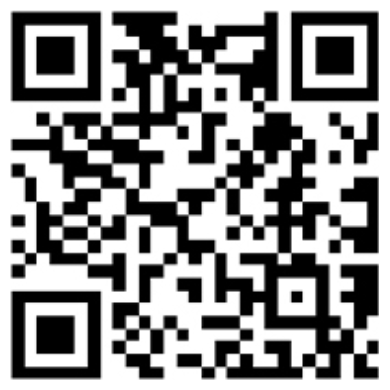Advanced Liquid Package Solution
In the packaging industry, bottle labeling machines play a crucial role in ensuring that products are not only well-presented but also compliant with regulatory requirements. The right labeling solution can significantly enhance a product’s market appeal and brand recognition while improving production efficiency. Different types of labeling machines are designed to handle various label materials, adhesive types, and production speeds, making it essential to choose the right equipment for your specific application.
In this article, we will explore the main types of bottle labeling machines, their applications, and how they integrate with modern liquid filling lines for optimal production efficiency.
Adhesive labeling machines, also known as self-adhesive or pressure-sensitive labeling machines, use a pre-coated adhesive on the back of the label. The machine peels the label from its backing paper and applies it directly onto the bottle surface.
Adhesive labels (paper or film)
Self-sticker labels
Beverage industry: Applying brand labels on water, juice, and soft drink bottles.
Cosmetics industry: For lotion, shampoo, and cream containers.
Pharmaceutical industry: High-precision labeling for medicine bottles and vials.
Food industry: Labeling sauces, oils, condiments, and dairy products.
Easy label changeover
High versatility for different bottle shapes and materials
No glue heating or mixing required
Cleaner operation
Adhesive labeling machines are ideal for businesses that prioritize flexibility and neat presentation.
Cold glue labeling machines apply a thin layer of water-based adhesive to the back of paper labels, which are then placed on bottles. This method is one of the oldest labeling technologies but remains cost-effective and reliable.
Paper labels
Paper-plastic composite film
Brewery industry: Beer bottles often use paper labels applied with cold glue for a traditional look.
Food packaging: Jars, cans, and glass bottles.
Low-cost mass production: Where label material and adhesive costs need to be minimized.
Cost-effective for high-volume production
Suitable for glass bottles and rigid containers
High-speed operation
Cold glue labeling is favored in industries where labeling cost per unit is a priority and the appearance of a traditional paper label is desirable.
BOPP hot glue labeling machines are designed for applying wrap-around labels made from plastic films such as BOPP (biaxially oriented polypropylene), pearl film, and paper-plastic composites. The labels are glued with hot-melt adhesive, ensuring a secure bond and moisture resistance.
BOPP film
Pearl film
Paper-plastic composite film
Paper labels (in some configurations)
Bottled water and soft drinks: Especially popular for PET bottles in high-speed production lines.
Edible oil packaging: For moisture-proof and durable labeling.
Household products: Cleaning agents, detergents, and other liquids.
High production speeds suitable for large-scale manufacturing
Moisture and abrasion resistance
Full 360-degree bottle coverage
Cost-effective for plastic film labels
BOPP hot glue labeling is the go-to solution for brands aiming for high-speed efficiency and a glossy, professional look.
When deciding on the best labeling machine for your production line, consider the following factors:
Bottle material and shape: Glass, PET, HDPE, or irregular shapes require different label handling.
Label material: Paper, film, or composite materials have specific adhesive requirements.
Production speed: Match your labeling machine’s speed with your filling line’s capacity.
Environmental conditions: Humidity, temperature, and exposure to liquids can affect adhesive performance.
Brand image and aesthetics: Certain labels (like full-wrap BOPP) give a more premium look.
A professional supplier can conduct tests and recommend the optimal labeling solution based on your unique needs.
In modern bottling operations, labeling machines are rarely standalone. They are integrated into liquid filling lines, working in sync with rinsing, filling, and capping equipment. Integration offers several benefits:
Synchronized Operation:
The labeling machine runs at the same speed as the filling and capping machines, preventing bottlenecks.
Automated Handling:
Bottles are automatically conveyed from the filling section to the labeling station without manual intervention.
Quality Consistency:
Labels are applied uniformly without misalignment, even at high speeds.
Space Optimization:
A compact, integrated system reduces the overall footprint of the production line.
Reduced Labor Costs:
Automation minimizes the need for manual bottle handling, improving efficiency.
By integrating labeling into a complete filling line, businesses can achieve higher productivity, fewer errors, and a more streamlined packaging process.
The bottle labeling industry is evolving rapidly, with innovations such as:
Smart Labels & QR Codes: Enabling consumers to access product information via smartphones.
Eco-friendly Labels: Biodegradable films and water-based adhesives to support sustainability.
Automatic Label Inspection Systems: Ensuring label placement and print quality meet strict standards.
Flexible Changeover Systems: Quick switching between label types and bottle formats for shorter production runs.
Keeping up with these trends ensures your labeling operations remain competitive and compliant with market demands.
Bottle labeling machines are an essential part of any modern packaging line, with adhesive, cold glue, and BOPP hot glue machines each offering unique advantages. Choosing the right type depends on your product, label material, and production requirements. Integrating labeling machines into a liquid filling line not only boosts efficiency but also ensures a smooth, automated, and high-quality bottling process.
For businesses looking to optimize their labeling and bottling operations, partnering with a trusted manufacturer is key. Alps Machinery provides advanced, reliable bottle labeling and filling solutions tailored to your specific needs, helping you achieve superior productivity and brand presentation.

By continuing to use the site you agree to our privacy policy Terms and Conditions.